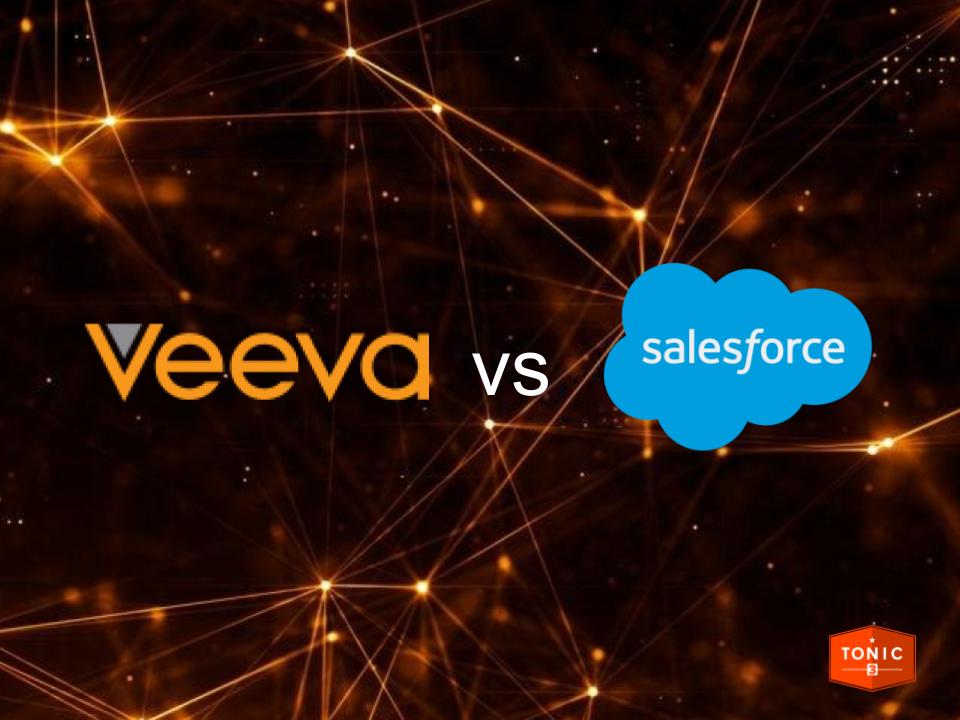Why is a Salesforce Consultant Essential for Maximizing Business Success?
Salesforce is a leading customer relationship management (CRM) software company that offers a suite of products designed to help businesses of all...
Tonic3 develops and executes strategies that drive profit through Digital Transformation. Practically that means we are built to help clients hone the right strategy, implement the right technology, and build the right long-term capabilities to deliver lasting transformation.
Industries
We believe that effective technology helps people succeed in their daily lives. So we help our clients engineer useful technology for their clients, partners, and employees. That translates to every major industry, but over the years we’ve developed several core areas of expertise.
3 min read
 Sergio Gaffoglio
:
Sep 13, 2023 8:51:53 PM
Sergio Gaffoglio
:
Sep 13, 2023 8:51:53 PM

In the ever-evolving world of marketing, technology has transcended its role as a mere tool to become the catalyst for transformation. Within this context, the pharmaceutical industry is undergoing a digital metamorphosis that extends far beyond the implementation of tools; it entails a profound reconfiguration of processes and a cultural adaptation.
Transitioning from a traditional commercial approach to a digital one is not an overnight endeavor. It's a journey that demands time, effort, and a solid strategic vision. In this regard, the process of change becomes a voyage where technology serves as the vehicle guiding transformation. The pharmaceutical industry is no exception to this evolution; in fact, it faces additional challenges due to strict regulations and entrenched culture. Adapting to change, being open to the unknown, and redefining roles become imperative to achieve successful transformation.
At the heart of this transformation lies the concept of the omnichannel customer experience. It's no longer sufficient to treat each touchpoint in isolation; instead, a comprehensive and coherent view of the customer across all channels is required. This is where Salesforce comes into play as a robust Customer Relationship Management (CRM) system. From case management and interactions with pharmacists to understanding purchase patterns and delivering added value, every stage demands a personalized and well-defined strategy.
The role of the representative evolves to become a source of added value. It's no longer just about segmenting customers based on their purchase volumes, but about cross-referencing that data with information provided by the digital portal. Consistency in communication and the integration of the representative's role with digital information are key to providing personalized and meaningful experiences.
Automation is not just about sending mass emails; it's about orchestrating highly personalized and relevant marketing campaigns. This is where Salesforce Marketing Cloud (SFMC) comes into play as an essential tool. The platform enables data management and segmentation to create campaigns that adapt to individual customer preferences and behaviors. However, it's crucial to highlight that Salesforce is not an end in itself but a strategic enabler that requires continuous optimization.
The implementation of Salesforce is not merely an installation matter; it's a process that starts with meticulous planning. Defining clear objectives, designing the strategy, and gaining C-level commitment are fundamental initial steps. However, execution is only part of the process. Unlike many other software solutions, Salesforce is not just about windows and buttons; it's a complete cultural and strategic shift. Continuous adaptation to innovations and changes is crucial to staying at the forefront.
Success in pharmaceutical marketing lies in the ability to create campaigns that offer real value to customers. Data and preference-based segmentation allow for sending personalized and effective messages. Automated journeys play a significant role here, guiding customers through their journey and responding to their actions consistently and accurately. However, automation must be supervised to ensure that authenticity and relevance are not lost in the process.
READ: How to create and deliver High-Impact Marketing Initiatives
It's essential to understand that Salesforce is not merely a technological tool but a strategic partner in the digital transformation of the pharmaceutical industry. From planning to implementation and continuous optimization, Salesforce offers a set of solutions that can amplify marketing strategy and take customer relations to unprecedented levels of personalization and effectiveness. With the right support, the right mindset, and a solid strategy, pharmaceutical companies can move toward a digitally empowered future.
Evolution does not stop at Salesforce. The creation of a direct-to-customer e-commerce is an example of how technology can redefine business models. This frees up representatives to focus on higher-value activities and build stronger relationships. Additionally, Salesforce Marketing Cloud (SFMC) is constantly innovating, with three major updates per year, ensuring that users stay at the forefront of technological solutions.
Digital transformation in the pharmaceutical industry is not merely a technological project but a strategic process that redefines how companies interact with their customers. Salesforce emerges as a platform that not only automates processes but also empowers marketing and sales strategies. From cultural adaptation to interdepartmental collaboration and the creation of personalized campaigns, every step is crucial in this journey towards omnichannel excellence and customer experience. With the support of expert partners and the willingness to evolve, pharmaceutical companies can fully capitalize on the advantages of Salesforce Marketing Cloud.
At Tonic3, we are a Salesforce partner and can help your company achieve success with Salesforce. With a team of certified experts and a proven track record of success, we can provide the support and expertise you need to make the most of the platform
Explore our Quick Starts for an immediate start with Marketing Cloud and the multiple Salesforce clouds.
If you're ready to take the next step, contact us to discuss how we can help your business succeed with the Salesforce platform.
.jpg)
Salesforce is a leading customer relationship management (CRM) software company that offers a suite of products designed to help businesses of all...

Stop treating your product roadmap like a high-stakes gamble. In the current digital environment, the speed of delivery often collides directly with...

Many people ask me what is the difference between Veeva and Salesforce? Veeva vs Salesforce, which is better? Both Veeva and Salesforce are CRM...